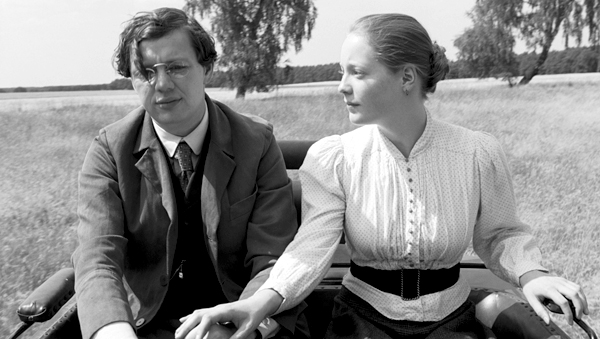|
Reviews of Recent Independent, Foreign, & Documentary Films in Theaters and DVD/Home Video

THE WHITE RIBBON Austrian director Michael Haneke’s 144-minute dramatization of the roots of fascism is—like all of his previous films—meticulously shot and edited. One of the most talented cinematic provocateurs, Haneke has been making intelligently disturbing movies since his debut feature, 1989’s The Seventh Continent. Haneke’s discerning if jaundiced eye has since espied teenage alienation (Benny’s Video), random violence (71 Fragments of a Chronology of Chance and Code Unknown), extreme cruelty (Funny Games), and a post-apocalyptic landscape (Time of the Wolf). In his last puzzler, Caché, Haneke convincingly transformed a Hitchcockian thriller into an exploration of French post-Algerian guilt. The White Ribbon—which was shot in immaculate black and white by cinematographer Christian Berger, lending an innocent veneer to the volatile proceedings—shows how a northern German village on the eve of World War I becomes prey to unexplainable atrocities that might involve several of the local children, beginning with a near-fatal injury to the local doctor and including the mutilation of a handicapped boy. As usual, Haneke makes sure to explain nothing, which makes this film both simultaneously sinister and irritating. By not showing who’s responsible for the increasingly horrific acts, Haneke implies that evil is both unpredictable and uncontrollable. The sadism depicted is primarily psychological, which is expected from the director of Benny’s Video, Funny Games, and Caché, but even when it turns blatant, it’s still extremely effective. The glacial pacing before the film's shocking moments contributes to a sledgehammer effect, particularly during the second hour, like after an atypically idyllic buggy ride with the charming schoolteacher (who narrates the story as an old man) and the young woman he’s courting.
Haneke always casts his films
cannily, and he stuffs The White Ribbon with authentic
performances: Even the actors’ looks are exactly right, especially the
children, several of whose severe, poker-faced features mark them as
especially vulnerable to dangerous groupthink.
Admittedly, this allegory of how the roots of Hitler’s Third Reich were
instilled in the children who would eventually grow up to yell “Heil
Hitler!” is smugly pleased with itself, as Haneke has never met an
obvious metaphor he doesn’t beat to death,
notably
the explanation and visualization of the film’s title.
Still, for those willing to go along for the ride, The White
Ribbon is a tremendously unsettling and horrific journey.
Kevin Filipski
|

